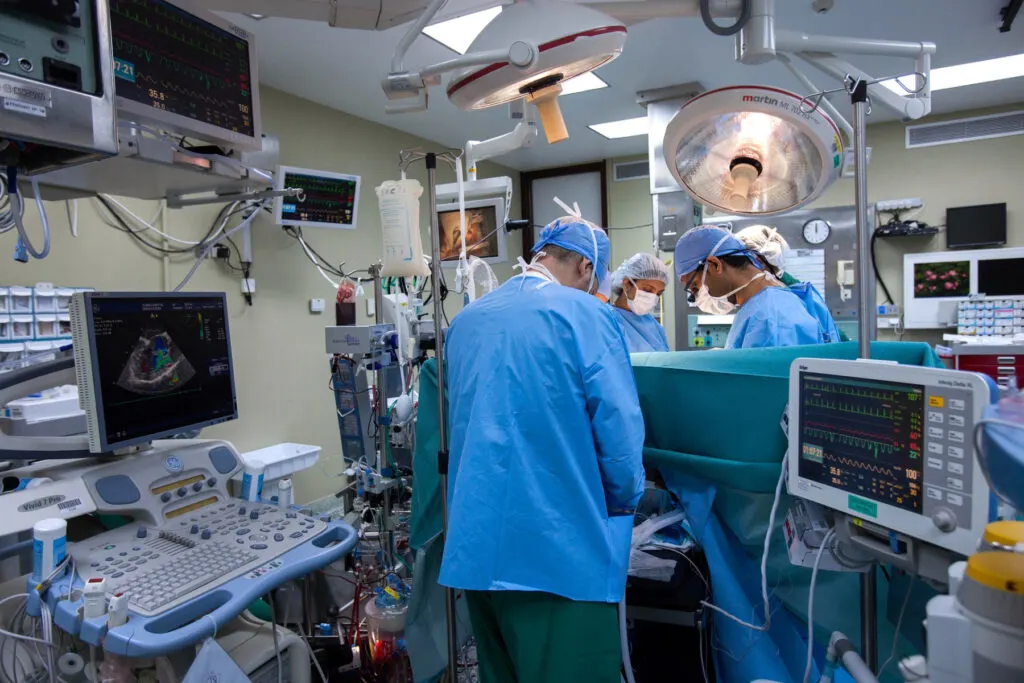This post may contain affiliate links. I only recommend products I use and love. Read the full disclosure here
Last Updated on April 4, 2024 by Alaina
Worried about your upcoming surgery? What is it about surgery that sends chills down peoples’ spines? Whether you’re undergoing facial feminization surgery or having a tummy tuck procedure, we pick our surgeons because we trust them. We know they will have the right equipment they need to get us through our surgery, such as wearing the correct surgical loupes. And we are aware that they are well-trained. Yet many of us are still incredibly nervous and unsure when preparing for surgery.
Rooted deeply in society are plenty of myths and misinformation about surgeries. And a lot of the fear comes from these. So today I am sharing some information that will help you better understand surgeries better and help you when preparing for your own procedure.
First, you need to understand the fact that most surgeries are invasive and may have physical, emotional, and psychological outcomes. Yet many of these outcomes can be prevented through proper preparation on your part and the surgeons’ part.

Surgical errors have significant undesirable effects that surgeons, patients, and the healthcare system in general greatly discourage. In addition to safe surgical practices, adequate patient preparation, proper consultation with insurance companies, and modifications of certain habits have been associated with positive surgical outcomes and good prognoses.
Know and understand your options
The first thing you need to do when preparing for surgery is to familiarize yourself with all aspects of your diagnosis and all possible options. This includes researching the diagnosis and getting a second opinion from an expert in the field. It is also important to evaluate other possible options before resorting to surgical management. After researching, if surgery is the only viable option, then get to know about the types of surgeries for your condition and decide accordingly.
Set up a meeting with your surgical team after the surgery date has been confirmed. Discuss the procedure to be done, how long the procedure takes, and possible complications. And while nobody wants to hear it, you should also be told about all possible complications and worse-case scenarios.
Get in touch with your insurance provider
Another important part of preparing for surgery is familiarizing yourself with your insurance plan. Get to know the plan you’re in, what services your plan offers, and whether or not it will cover your procedure. Avoid surprise medical bills by calling your insurance company and verifying all the details before you even start planning for the surgery. Find out if your insurance provider covers post-surgical expenses, prosthetics wheelchairs, and any aids needed post-surgery. Know which hospitals your plan covers, and know how much your plan covers.
Start any necessary insurance paperwork in order to avoid any last-minute rushes.
Eat a balanced diet and hydrate
Once you get all of the technical details out of the way, it’s time to focus on getting yourself physically and mentally for the procedure.
Since surgery is an invasive procedure, one of the most important things you need to focus on when preparing for surgery, is your body. It is vitally important to take good care of your body before, during, and after the surgery.
Eating a well-balanced diet is a major contributor to a fast recovery and successful operation. This is because your body is at its best functionality when properly nourished.
Hydration is also key to a successful and speedy recovery. The body needs adequate nutrition, hydration, rest, and exercise for healthy living.
Get any necessary dietary instructions from the surgeon as some surgeries may require a special diet.
Stop unhealthy habits and take recommended medication
Use this time to kick bad habits. Stop smoking and drinking for the period leading to the surgery. Smoking especially because in addition to all of its other negative effects, smoking also lowers blood hemoglobin (the stuff that helps blood clot) levels. And since surgery is a process that may lead to bleeding, it can cause serious complications.
Drinking during this time is also risky since it affects the liver and most drugs are metabolized in the liver. This could, for example, have an effect on the anesthetic drugs.
During this period, make sure to take the recommended medications. Some pre-surgical medications are key for the success of the procedure, and some aid in the quick recovery of patients. The most important of them include prophylactic antibiotics and atropine that aid the surgery and promote quick recovery.
Manage stress and fear
When it comes to preparing for surgery, stress and fear are two of the most common emotions. Talking to your physician about the procedure and getting to understand the procedure and its possible outcomes will go a long way towards reducing these feelings. Some procedures may require longer recovery time or be particularly traumatizing—amputations, for instance. In these scenarios, meditation exercises and physiotherapy may be required when preparing for surgery.
Psychological preparations are a major preparation factor that helps in the quick recovery of patients. Having a partner, friend, or family member that you can rely on and talk to is priceless as emotional support is needed for a steady and successful recovery.
Lastly, on the day of the surgery, make sure you get to the facility on time, and follow the surgical team’s instructions and suggestions.
